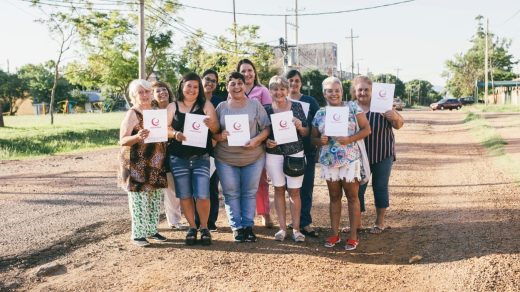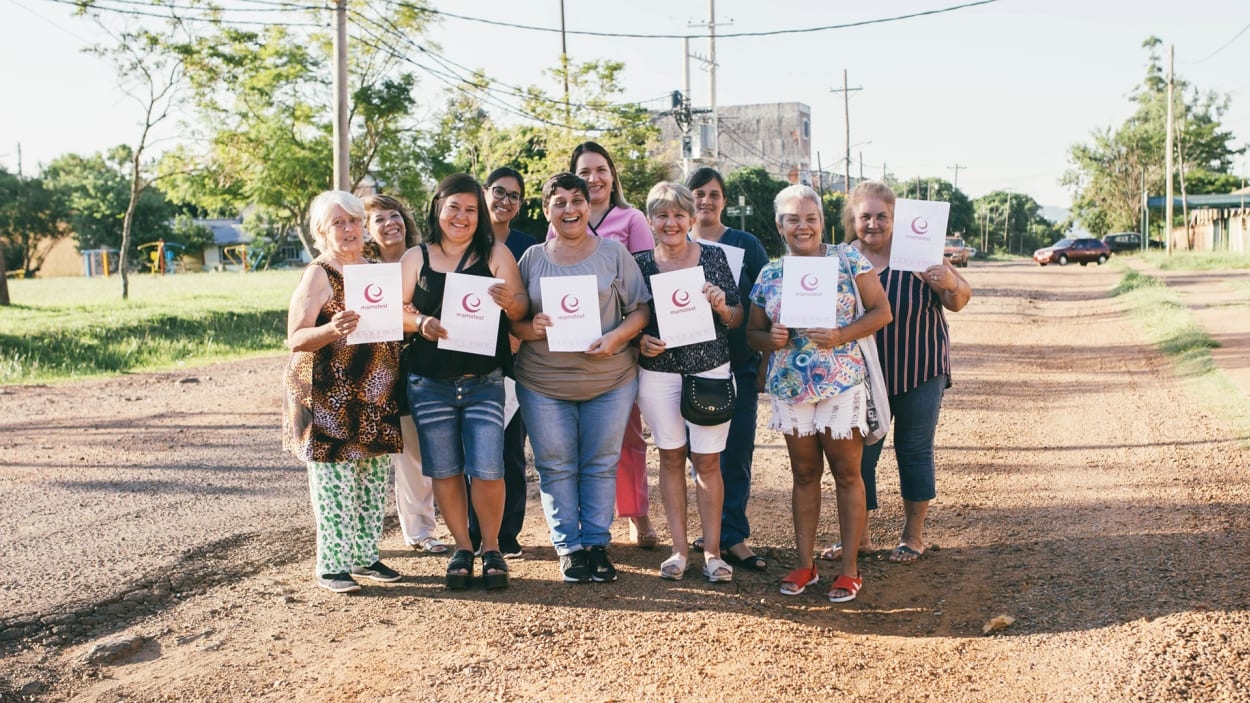This Argentinian startup wants to improve breast cancer detection in Latin America
By Andrea Paola Hernández
For radiologists working in developing countries, a constant source of frustration for those who screen patients for breast cancer is finding it when it’s too late to effectively treat it.
The American Cancer Society says breast cancer has a 99% survival rate in the United States—where the Centers for Disease Control and Prevention (CDC) estimates 27,000 cases are diagnosed annually—and other similarly developed nations. But in developing countries and rural areas, that rate drops to 27%. The only difference is early diagnosis.
“Seventy percent of breast cancer cases in Mexico are detected in advanced stages, and 20 women die daily from it,” said Eliza Puente, head of Fundación CIMA, a Mexican breast cancer education and prevention organization. “The problem is that this is a totally detectable and curable disease, but time is key. Diagnosis takes too long in our country, and access for treatment is scarce.”
That challenge of access—and the resulting late diagnosis of breast cancer—was something entrepreneur Guillermo Pepe saw frustrate his father, a radiologist specializing in breast cancer, in Argentina—whose citizens face health-access issues similar to Mexico’s.
In 2013, having just returned to Argentina after years in Spain managing his four restaurants, Pepe saw his life’s mission as helping make screening technology and preventive medicine more accessible in order to change these numbers. That same year, he founded Mamotest, an affordable high-quality diagnosis and patient-support solution that uses AI to improve its service.
“Knowledge and information are the base of the pyramid to battle breast cancer, as well as collaboration,” said Pepe says. In the decade since its founding, the company—recognized on Fast Company’s 2023 list of the Most Innovative Companies in Latin America—has screened more than 650,000 patients in Argentina and Mexico, with 87% of its patients getting diagnosed early enough to treat their cancer and save their lives.
After operating in Argentina for almost 10 years in areas where access is low, the company moved into Mexico in 2022, establishing four clinics in the states of Guadalajara, Monterrey, Pachuca, and Veracruz, and performing more than 18,000 tests by the end of the year. Besides offering WhatsApp consultations with patients to find a workable price for screenings, it also helps patients connect to government programs and other resources—including treatment.
“Our biggest difference with other models is that we offer comprehensive general care,” Mamotest chief communications officer Luisa Goldaracena says. “Mamotest’s team believes in a shift in the healthcare system toward proactivity, a system that keeps you healthy and detects diseases in their early stages.”
Driving these diagnoses is Mamotest’s screening and detection technology. The company has partnered with companies including German AI platform Vara to train its system to better read mammograms and detect cancer more quickly and more accurately. Goldaracena says the company’s AI is able to detect anomalies the human eye can’t catch while making the patient screening process more efficient.
Beyond its screening technology, Mamotest also has its own patient-management platform to offer patients tracking, including medical history, test results, and personal data.
“We have follow-ups with our patients on our platform and accompany them in their next steps after they get screened,” Goldaracena says. “We have a team of psycho-oncologists who support the patients until their treatment is done, so none of them feel alone.”
Mamotest’s efforts are being recognized worldwide, being selected by the United Nations and the World Economic Forum as one of the top health tech companies in the world, and winning the 2022 Zayed Sustainability Prize. In 2023, Mamotest raised $3.3 million in pre-Series A funding from Johnson & Johnson Impact Ventures, Merck, Sonen Capital, and venture capital firm Sky High.
Last September, Mamotest established alliances with local companies in Mexico like Makro and Jac Motors to provide their employees with monthly mammogram subscriptions, using the companies’ fees to provide free testing for women who can’t afford them and creating a culture of prevention. It’s now working toward further expansion, with Pepe’s eyes set on Brazil, Colombia, and even vulnerable areas of the United States.
Fundación CIMA collaborates with Mamotest in Mexico and refers patients. Mamotest is a new partner awareness effort—including healthcare-worker training and informative campaigns—around breast cancer that the organization has been undertaking for 20 years. “No health system in the world can sustain all the diseases in the world, so we need to do our share and focus on prevention,” Puente says. “We need to educate patients before they even get the chance to get sick.”
(16)



